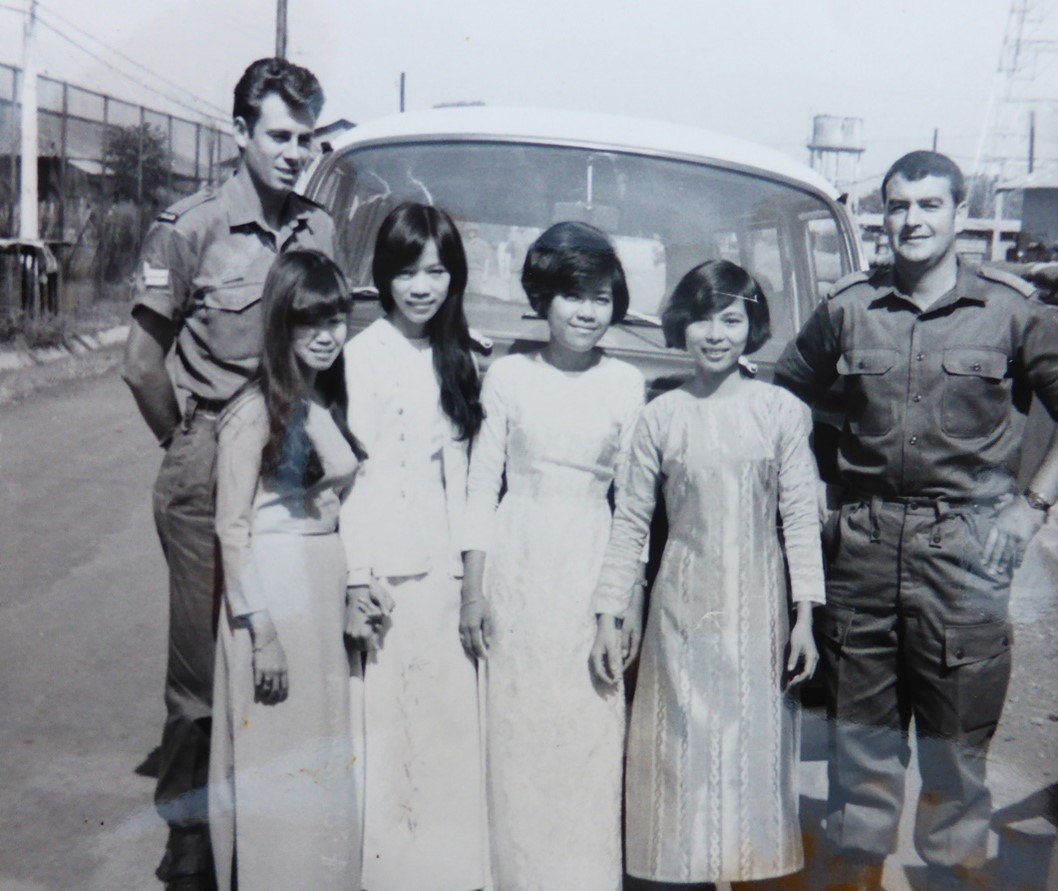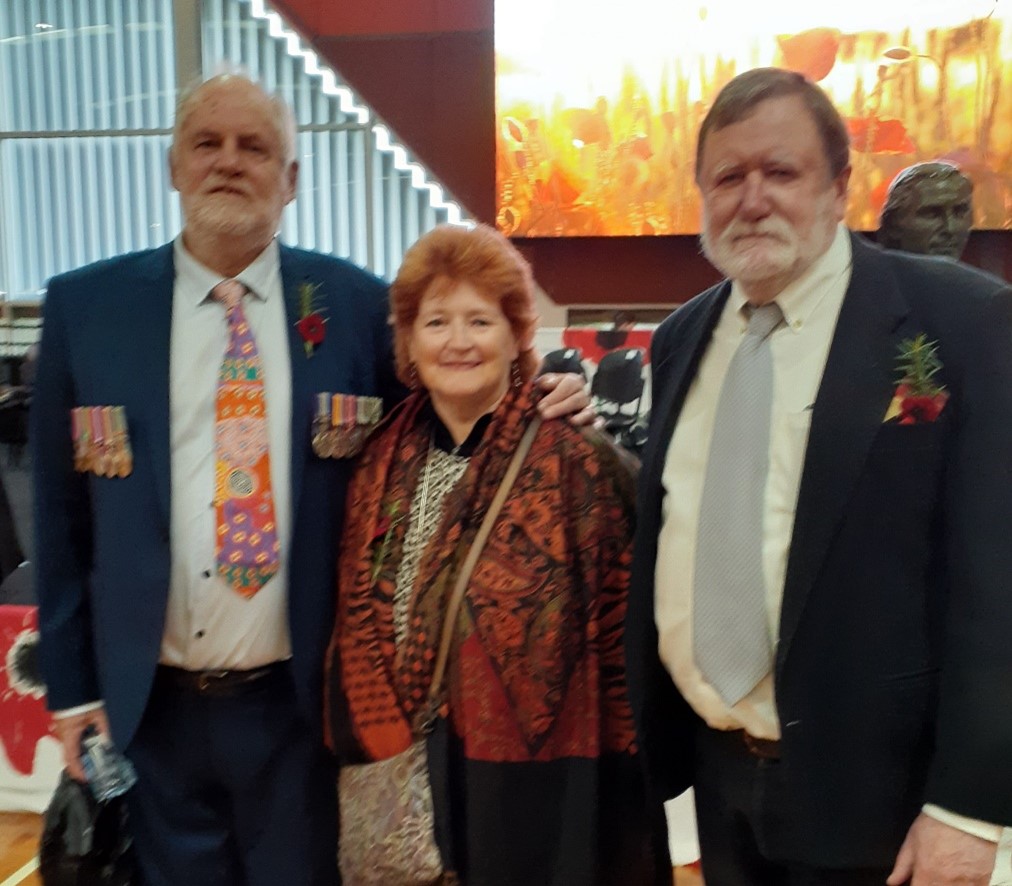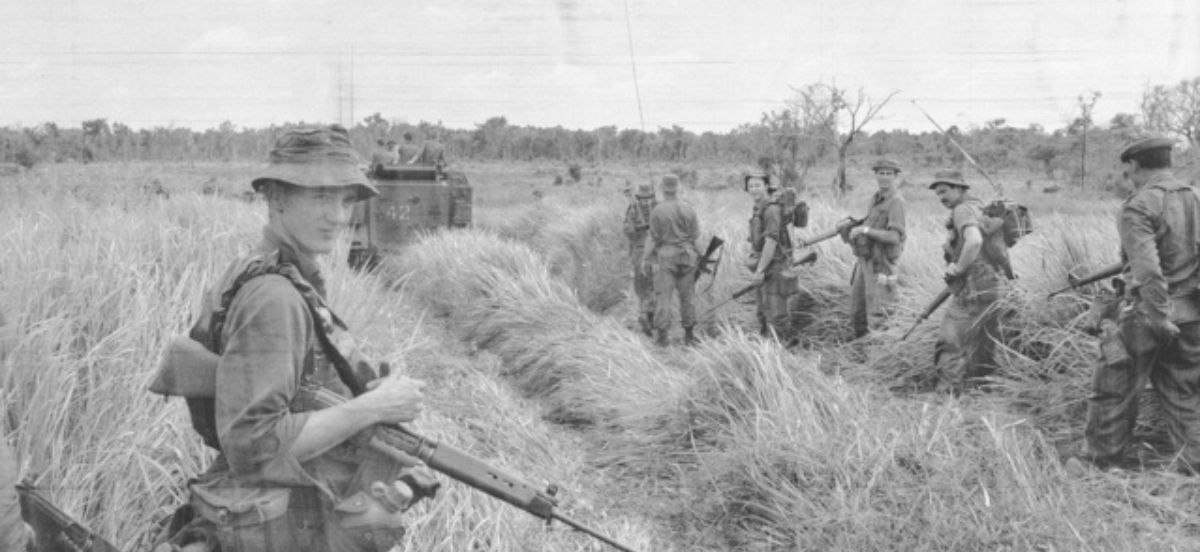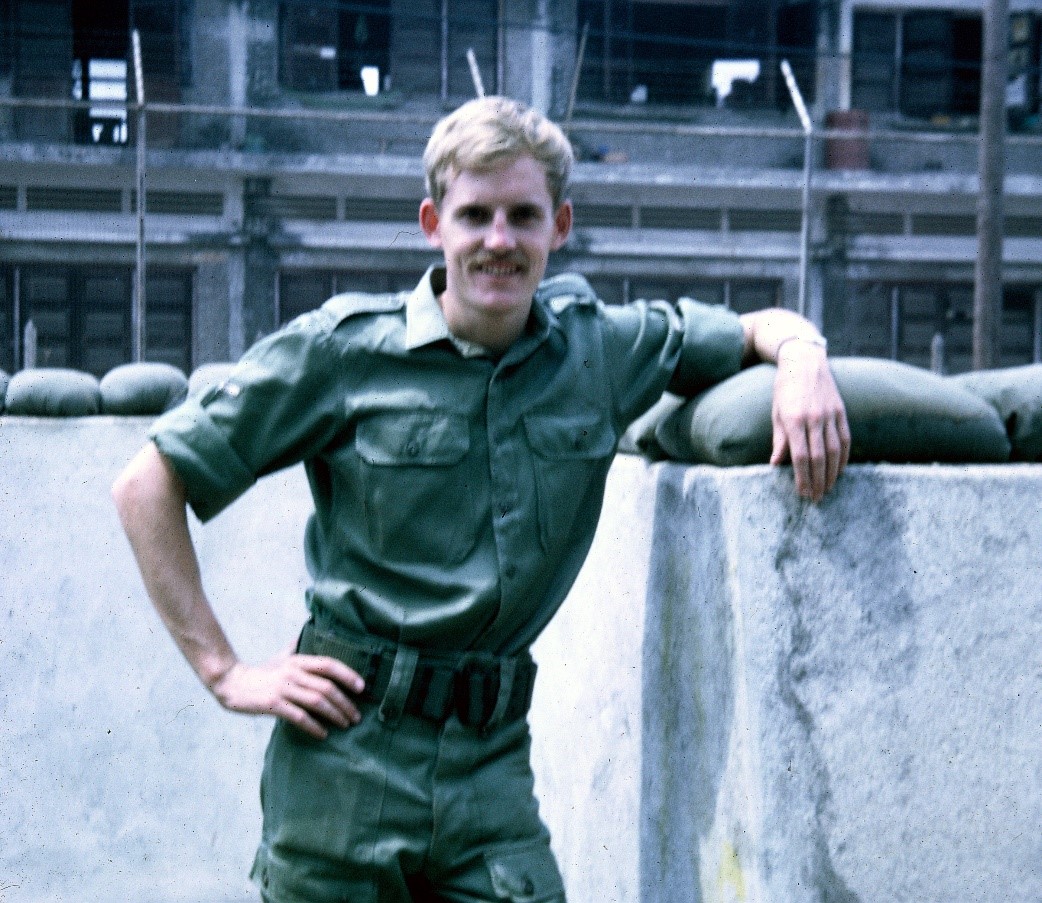Aug 2023
Vietnam service sparks life-long commitment to giving back
For Alan O’Connor, the deep connection to his service in Vietnam has remained with him for 50 years, providing learnings he continues to share with others to this day.
Alan O’Connor grew up in Melbourne as the eldest of six children in a happy and stable home. His mother cared for their large family full-time, and his father was a senior bureaucrat in the Department of Supply, which would later become Defence Support.
In 1967, Alan completed his final year of schooling at Marcellin College in Victoria, where he was appointed school captain. Later that year, his father’s role was transferred to Canberra, and so the family of eight moved north.
After high school, Alan studied Economics at the Australian National University in Canberra. It was in Canberra where he met his wife, Joan, an active anti-Vietnam protestor which he recalled, “made life interesting”, especially when his number was called in 1969.
“My first reaction was shock, and then resignation,” said Mr O’Connor. “Looking back, I was quite naïve about politics and knew little about how Australia even came to be involved in the Vietnam War.”
Alan was able to defer his service for a year to allow him to continue his studies, and during this time he commenced work at the Australian Bureau of Statistics. In February 1970, at age 20, Alan joined the Australian Regular Army to commence his National Service.
After completing basic training, Alan was sent to Vietnam and was posted to Army Headquarters in Saigon, arriving in December 1970. He recalls being taken aback by the pollution, chaotic traffic, and the poverty when he arrived in the busy city, where he lived in an old hotel in the Cholon district. “Wire had been installed to the third level in case grenades were thrown at the building,” he said.
Once in Saigon, Alan commenced a role as the US Liaison Non-Commissioned Officer (NCO) at the headquarters. The role involved transcribing all Australian requests for US stores into US computer code, as well as assisting in the transportation of stores through security controls at the US Long Binh base, which was located 12 km from the city.
Alan worked as part of a small team, alongside an Australian Captain named Bob, a New Zealand Corporal named Jim and four very efficient local women.

Alan’s colleagues, Jim and Bob with the four local women who provided administration support.
Along with being challenged by the heat, pollution and tropical downpours, Alan and the team faced the very real – and close – threat of attack.
“On December 16, 1970, two warehouses were blown up by the Vietcong. From then on, all vehicles were required to carry two armed men,” he recalls. “On 19 December, there were more rocket attacks in the city and there were rumours that all Australian troops would be shifted back to Vung Tau.”
Alan, Jim and Bob were eventually moved out of Saigon and posted to the US base at Long Binh, which housed 40,000 troops and stores to the value of US$2 billion at its peak.
Making new friends, Alan says that morale was generally high at the base as the group he was serving with had a positive mindset.
He also describes being in the unique position of working and living alongside Black-American and Puerto Rican soldiers at a turning point in US history. “Recent events in the United States, such as the assassination of Martin Luther King, the temporary jailing of Muhammad Ali and the protests of Smith and Carlos at the 1968 Olympics had a huge impact on these guys, many of who were against the war,” he said.
Alan remembers the team working six-and-a-half days a week, with evenings and Sunday afternoons usually spent exploring local markets and letter writing, watching movies in the dining room, or enjoying live music. Keen to continue developing his skills, Alan was also undertaking further study and completing a university course by correspondence.
But reminders that they were in a war zone were ever-present.
“We lost two colleagues trying to diffuse enemy munitions,” he recalls. “It was a very challenging time.”
After 10 months of service, Alan returned to Australia in October 1971. He acknowledges that while many Vietnam veterans were treated poorly upon their return home, the “Welcome Home Parade” in 1987 and Redgum song “I was only 19” helped create a more understanding shift in public opinion.
Alan and Joan married in Canberra in 1973 and moved to Adelaide in 1976 to be close to family before welcoming their three children. Alan had returned to work at the ABS after his Vietnam service and he was able to transfer his role to Adelaide. He moved into the Population Census Branch where he worked on the development of the 1976 and 1981 census.
In 1984, Alan took a role as the Research Officer in the South Australian Government’s Emergency Housing Office. His career in state government continued with several positions in the areas of social justice, Aboriginal affairs and social policy. In 2012, Alan also completed a PhD at UniSA focused on “Indigenous Enterprises and Entrepreneurship in Remote Anangu Communities”.
Fifty years on from the end of Australia’s involvement in the Vietnam War, Alan reflects that having taken him out of his comfort zone as a young man, his experience in Vietnam made him “grow up”.
“I was able to meet and hopefully have a positive impact on a large number of people,” he said. “I was fortunate to serve with a high calibre group, with excellent leaders and I enjoyed the company of the local Vietnamese people.”
His service in Vietnam taught him that life is precious, and about the importance of learning to stand in another person’s shoes. It also instilled in him a drive to give back to the community, which has seen him undertake humanitarian work volunteering for Habitat for Humanity building houses both in Australia and internationally in countries like Nepal, India, Sri Lanka, Cambodia, Vanuatu and Fiji.

Alan and Joan with friend Dave at Marcellin College ANZAC Commemorations 2022
Joined by his wife Joan and some friends, Alan also travelled back to Vietnam in 2017. “It was a very emotional experience,” he said. “I was able to locate my former work and accommodation places before they were changed forever.”
For Alan, Vietnam Veterans’ Day is a special time to reflect on his time in Vietnam. Acknowledging that his experiences were unique and that he was fortunate in many ways, the day is also a time to remember the friends he made in Vietnam, especially those who have since passed away.
Today, Alan’s connection to service remains close to his heart and has become one he shares often with others. As a keen learner, he is widely read on the war from local, US and Vietnamese sources, and delivers regular talks to South Australian branches of the University of the Third Age about his experience and learnings. Alan also proudly recalls being asked by his old school, Marcellin College, to deliver the 2022 Anzac Day address in front of an audience of 1,600.
Alan attends the Dawn Service on ANZAC Day at Semaphore and acknowledges the great work of the Port Adelaide Defence Shed and his local RSLs at Semaphore and Largs Bay.
Alan has also donated his diaries, letters, audio recordings and photos to the Australian War Memorial and his story to the Virtual War Memorial, both of which help current and future generations remember, interpret and understand the Australian experience of war. “I would encourage anyone with stories and experiences to share to record them through platforms like the Virtual War Memorial so these stories can live on.”
“I’ve always been interested in history, but I never imagined that I would become a part of history,” he said. “I continue to learn and present my learnings about the Vietnam War, including my own experiences, in the hope that this history is not lost with my generation.”
In 2023, we commemorate the 50th anniversary of the end of Australia’s involvement in the Vietnam War, in which close to 60,000 Australians served. Veterans SA serves to honour and support every person that selflessly fought for our freedom, and their families.
Read more stories about the military experiences of South Australian veterans.




